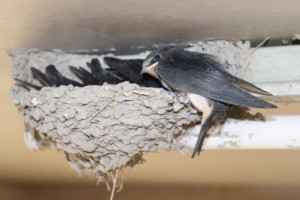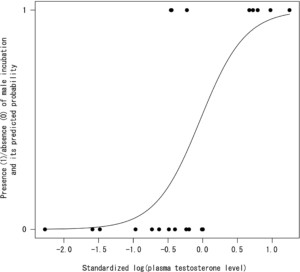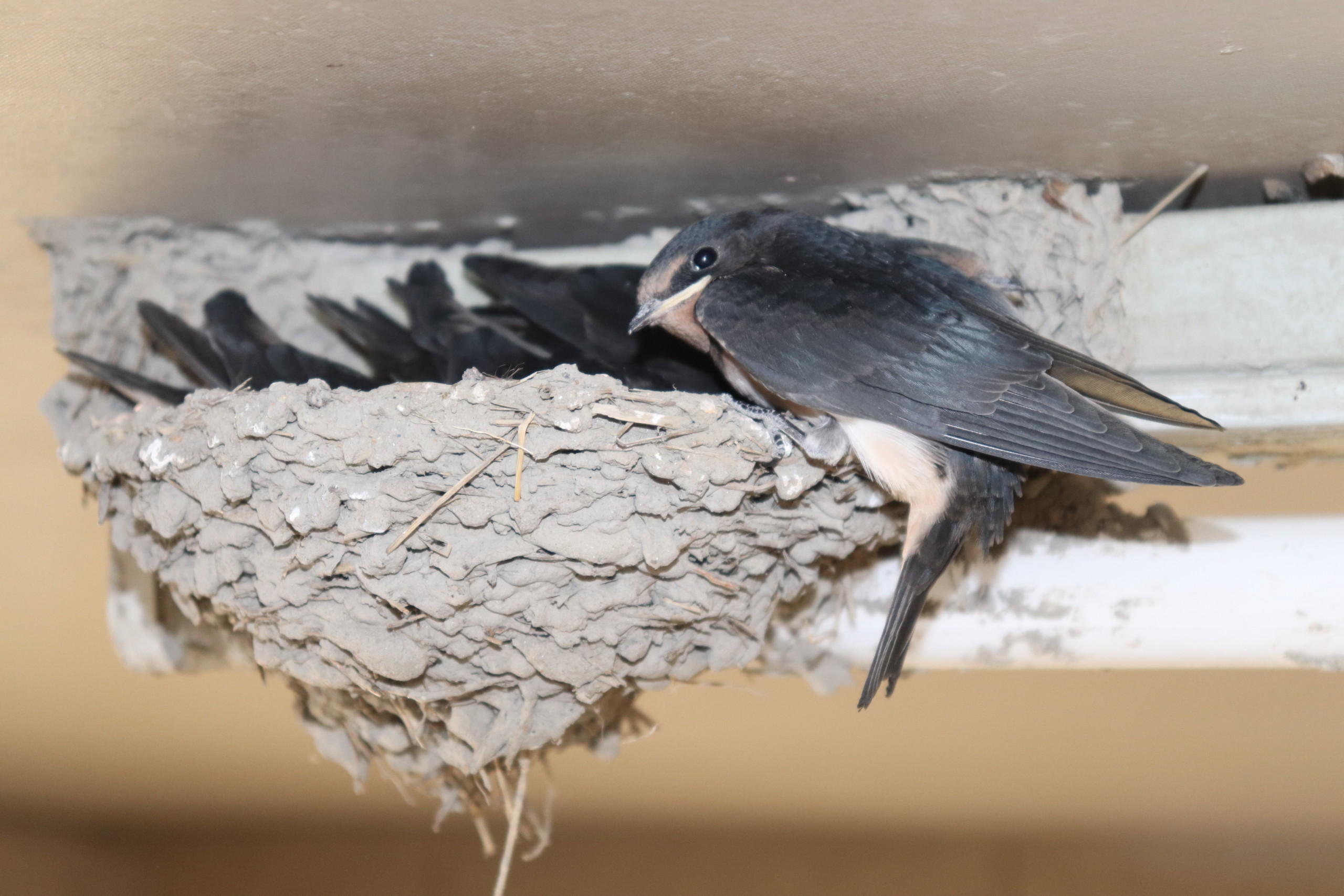 LINKED PAPER
LINKED PAPER
Probability of incubation by male Japanese Barn Swallows increases with plasma testosterone level. Hasegawa, M., Arai, E., & Nakamura, M. 2020. IBIS. DOI: 10.1111/ibi.12816 VIEW
High testosterone levels are not conducive for good parental behavior. Numerous studies have reported a negative relationship between the level of this sex hormone and paternal care (Lynn 2016). For example, testosterone-tanked male Starlings (Sturnus vulgaris) spend less time incubating the eggs because they were too busy singing to neighboring females (Pinxten et al. 2007). The link between testosterone and paternal care makes intuitive sense: higher levels of this hormone increase aggression and lead to more sexual behavior. Not the ideal traits for a good parent. But in biology there are always exceptions, as exemplified by a recent study on Japanese Barn Swallows (Hirundo rustica gutturalis).
Incubation
Masaru Hasegawa, Emi Arai and Masahiko Nakamura monitored the nesting behavior of Barn Swallows in a residential area of Joetsu City. They captured roosting birds during the night and measured the testosterone levels in their blood plasma. Next, they pointed cameras to the nests and carefully observed the daily lives of the Barn Swallows. Specifically, the researchers noted down how often the male incubated the eggs. In contrast to the expectations described above, males with high testosterone levels were more likely to participate in incubation. What could explain this surprising result?

Figure 1 The probability of male incubation (on the y-axis) increases with higher testosterone levels (on the x-axis).
Predation
The peculiar paternal care of these birds might be related to the high predation pressure in the area. In contrast to other subspecies, Japanese Barn Swallows do not breed in colonies but build their nests in separate locations (Turner 2006). The isolated nests are more vulnerable to predators (Arai et al. 2009). Moreover, the Barn Swallows have to be on the lookout for competitors, such as Tree Sparrows (Parus montanus), that could take over their nest. Males with high testosterone might thus be more aggressive and vigilant, guarding the nest while incubating the eggs (Kazama et al. 2011). However, the patterns in this study are only correlational and other factors might explain this surprising relationship between testosterone levels and paternal care. Indeed, the researchers indicate that “testosterone manipulation, together with experimentally simulated predator exposure, is required to investigate the causal relationship between plasma testosterone levels, nest monitoring and male incubation investment.” To be continued.
References
Arai, E., Hasegawa, M. & Nakamura, M. (2009). Divorce and asynchronous arrival in Barn Swallows Hirundo rustica. Bird Study 56: 411– 413. VIEW
Kazama, K., Niizuma, Y., Sakamoto, Q.K. & Watanuki, Y. (2011). Factors affecting individual variation in nest defense intensity in colonially breeding Black‐tailed Gulls. Canadian Journal of Zoology 89: 938– 944. VIEW
Lynn, S.E. (2016). Endocrine and neuroendocrine regulation of fathering behavior in birds. Hormones and Behavior 77: 237– 248. VIEW
Pinxten, R., de Riddler, E., Archens, L., Darras, V.M. & Eens, M. (2007). Plasma testosterone levels of male European Starlings (Sturnus vulgaris) during the breeding cycle and in relation to song and paternal care. Behaviour 144: 394– 410. VIEW
Turner, A.K. (2006). The Barn Swallow. London: T & AD Poyser. VIEW
Image credits
Top right: Japanese Barn Swallow (Hirundo rustica gutturalis) | Alpsdake | CC BY-SA 4.0 Wikimedia Commons
Blog posts express the views of the individual author(s) and not those of the BOU.
If you want to write about your research in #theBOUblog, then please see here




